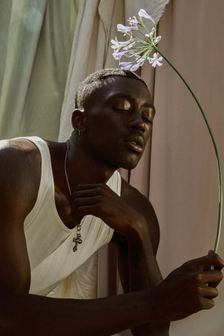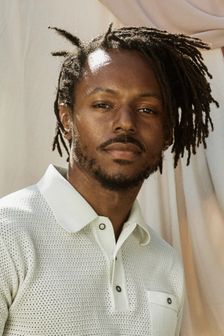Vocabulary
Language is important, and every movement is filled with complex concepts and complicated terminology. This list was specifically created to equip you with the knowledge necessary to battle brutality in your community.

Activist An activist is a purpose-driven advocate who takes direct action against a political institution. An activist typically protests against a political institution with intent to change policy.
The blue wall of silence, blue code, blue shield, blue code of silence The blue code of silence is an agreement between police officers to protect officers, even when they’ve committed a violent crime on the job.
Broken windows policing A policy theory that suggests the prevention of minor offenses ultimately eliminates far worse future crime.
Chokehold A suffocating, tight grip around a person's neck that intentionally cuts off oxygen to the brain.
Civilian oversight board A collective of civic-minded individuals banded together to hold institutions accountable for behaviors and policies.
Coalition A group of organized individuals banded together to fight for a specific cause or political issue.
Community policing A meaningful approach through which police departments build strong relationships with the local community to improve public safety and empathy.
Excessive force An aggressive police response that is not necessary in a given situation.
First Amendment Rights The right to free speech, free press, to assemble peacefully, to petition the government, and to practice any religion of choice. This freedom is often disturbed when it serves to the benefit of the police force.
Guardian mindset An often unused philosophy that encourages police officers to approach every citizen as an ally by assuming innocence rather than immediate guilt. When this action is applied, officers proactively build relationships through community outreach and service-minded partnerships.
Movement A large group of people assembled over a common cause with intent to change a political policy, institution, or system.
No knock warrants A judicial authorization for a police officer to arrest, seize property, or search a building without any prior warning.
Organizers The lobbying leaders of a political movement who inspire, motivate, and activate groups of people over a shared initiative.
Police accountability A form of institutionalized security that protects police officers who commit crimes from adequate punishment. Over an 11-year period, almost 2,000 officers were fired from the nation’s 37 largest departments, of which almost a quarter won their jobs back after appeal.
Police brutality The excessive and unnecessary force used by police officers to exercise power over civilians, most often threatening the lives and livelihood of Black Americans.
Police training An archaic form of educating officers that lacks uniformity, universal standards, or community involvement.
Police union An organized body of police officers bound together by agreements that ultimately protect them from accountability.
Predictive policing A form of policing that relies on “big data” to predict behaviors within communities of color.
Pretextual stops A police practice in which officers routinely stop Black and Latinx people within the community based on nothing more than the color of their skin.
The prison industrial complex A form of overlapping interests in which the policing system financially benefits the profiteering prison industry by supplying an excess of prisoners–impacting Black people most prominently, often with extreme sentences handed out for minor infractions.
Privilege An advantage one person or group has over another—typically associated with race and socioeconomic status.
Proactive policing A form of passive-aggressive policing that suggests the presence of potential criminal behavior, often resulting in escalating and unnecessary tensions.
Profiling An act of discrimination built upon the judgment of people based on physical traits.
Racial profiling The assumption of guilt based on someone’s race.
Structural violence A form of systemic racism that creates extreme disadvantage for people of certain races.
Systemic racism & institutional racism The systems and institutions in place that protect the centuries-old white power structure in America—such as housing, criminal justice, education, and health care—while holding back Black innovation and socioeconomic rise.
Qualified Immunity A form of protection for police officers that often provides full immunity even when a clear crime has been committed. While Black people are often considered guilty until proven innocent, qualified immunity allows officers to be judged as innocent even when extreme evidence suggests otherwise.
Use of Force An escalating form of violence against a perceived perpetrator, often used inappropriately and without cause against Black people and other minorities; the number one most common complaint against police officers involves the excessive use of this force.
Warrior Training A form of training that prompts officers with a “ready to kill” mindset that leads to a presumed threat in every encounter.
White fragility The discomfort and defensiveness that arises for white culture when faced with the crumbling of privilege-protecting institutions.
White supremacy The institutionalized fallacy in which white people are considered vastly superior to other races, particularly the black race.
Sources: obama.org, criticalresistance.org, legaldictionary.net, careertrend.org, worc.org

